
Mimi ni Tai
A Bold & Evidence-Based Menstrual Health Hygiene Campaign in Tanzania
January 2020-March 2021
Program Designer and Director
Only 14% of Tanzanian students who enroll in Primary School make it all the way to graduation. There are many reasons for this: period poverty, early childhood marriage and pregnancy, violence against female students, and competing household demands.
In 2019, one Maasai woman decided she had to act. She formed a nonprofit organization called Elle Peut Naidim, which means, “she can” in both French and Maasai. The woman, Ruth Meriki, had a hunch about what the community needed, and concrete data collected over the course of many years from stakeholders in the community about the issues they were facing.
In 2020, Ruth hired Hannah Erickson to lead design efforts for an series of educational campaigns that would be deeply responsive to the community needs. The only way to create such programs would be to center them around the unmet, unknown, and largely unseen needs of the very population the programs intended to serve: the students.
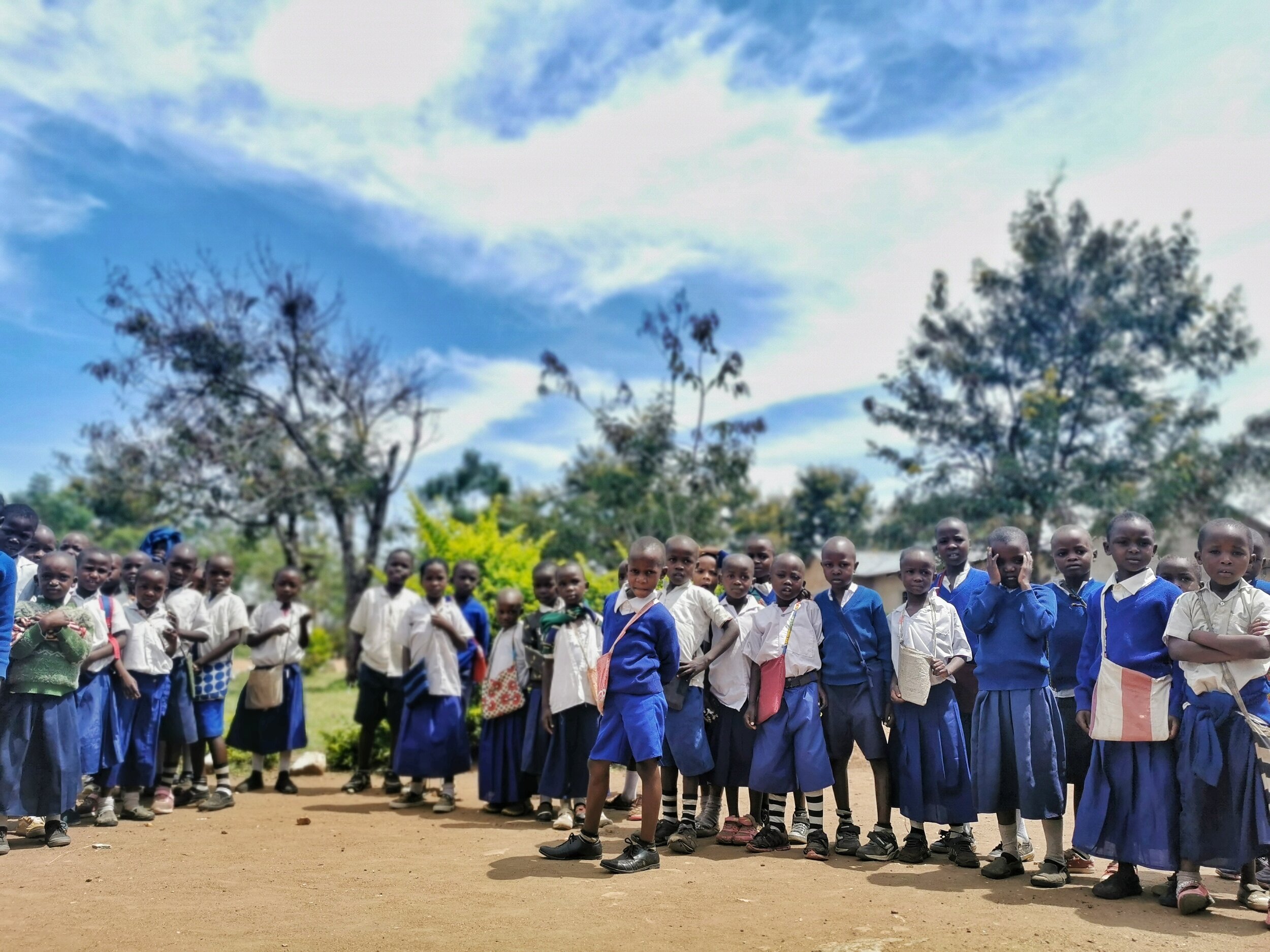
The Elle Peut Naidim Team came together quickly: 17 major governmental and nongovernmental actors and 15 volunteers from both Tanzania and the United States engaged in a fact-finding mission. Over the course of six months, they spoke to anyone and everyone they could find about the community’s perception of its largest, most pressing issues, who was working on them, and what the solution sets were. Again and again, period poverty was listed as one of the largest barriers to girls’ education. And many people were working to solve it.

But what the team found was alarming: while a large number of individuals and organizations were attempting to address period poverty, their tactic was to simply distribute menstrual materials to school-aged girls. Few were providing education, and nobody was asking the students whether, and under what conditions, the materials actually worked for them.
And so, Elle Peut Naidim zeroed in on period poverty, and set out to answer the questions they felt were most critical to effectively meet students’ needs: why nobody was talking to the students, why education was seldom provided, and whether education, in fact, mattered in efforts to eradicate period poverty at all.





Through rigorous field work and community conversations, the team discovered that, even after the distribution of menstrual materials, girls were still struggling with hygiene: high rates of UTIs and serious fungal infections persist due to the misuse and misinformation surrounding menstrual materials in the absence of education about menstrual hygiene.
Elle Peut Naidim discovered that education matters tremendously: it is what informs students about how to comfortably and safely manage their periods with all materials, in the complex environments in which they live. And so, they created a 90-minute campaign that would give Primary, Secondary, and University students a chance to do just that.
The team called their campaign “Mimi ni Tai,” which, translated from Swahili to English means, “I’m an Eagle.” The team chose this particular symbol because eagles are known to have excellent, long-range vision; to be high-flyers; and to never give up.
The campaign is grounded in reality, and takes a perspective of abundance (“you have enough, and you are enough”) rather than scarcity (“you won’t be able to manage your period unless someone donates a reusable sanitary pad to you”). Mimi ni Tai identified the most harmful behaviors girls were engaging in, that were likely to make them sick, or keep them home from school.
The campaign taught the girls how to create a heating pad from a warm beer bottle; how many times to fold a piece of fabric for maximum absorbency; the importance of changing your materials every 6-8 hours and drying your reusable pads in the sun rather than under the mattress; that painkillers don’t make you infertile; and exactly how much water you need to wash reusable sanitary pads when water is scarce.
Elle Peut Naidm undertook a Proof of Concept with its prototype campaign in a peri-urban Secondary School between October 2020 and January of 2021; the team wanted to show the community how much education matters to girls’ safety when it comes to Menstrual Health Hygiene and Management, and that distributing materials isn’t enough.
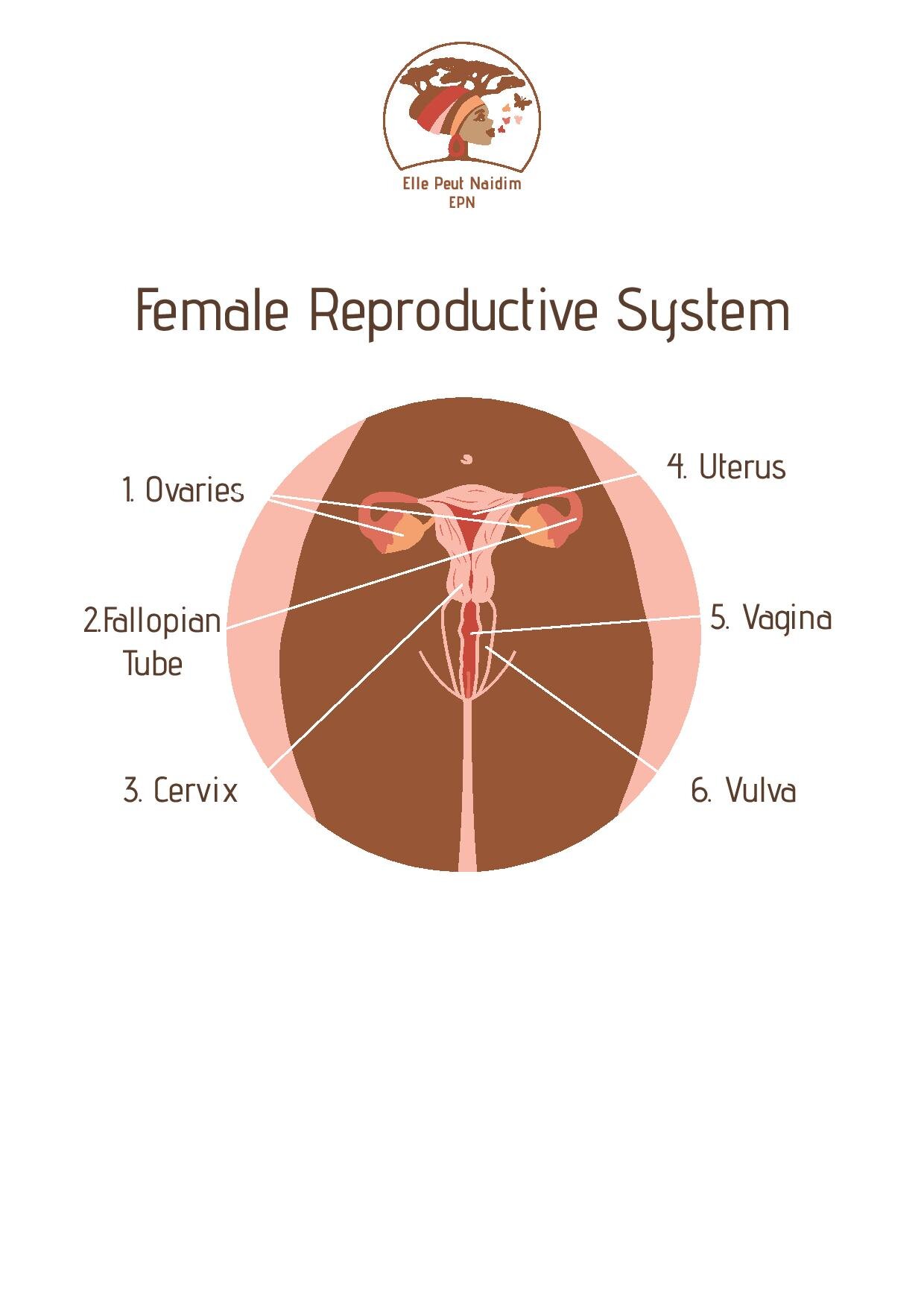

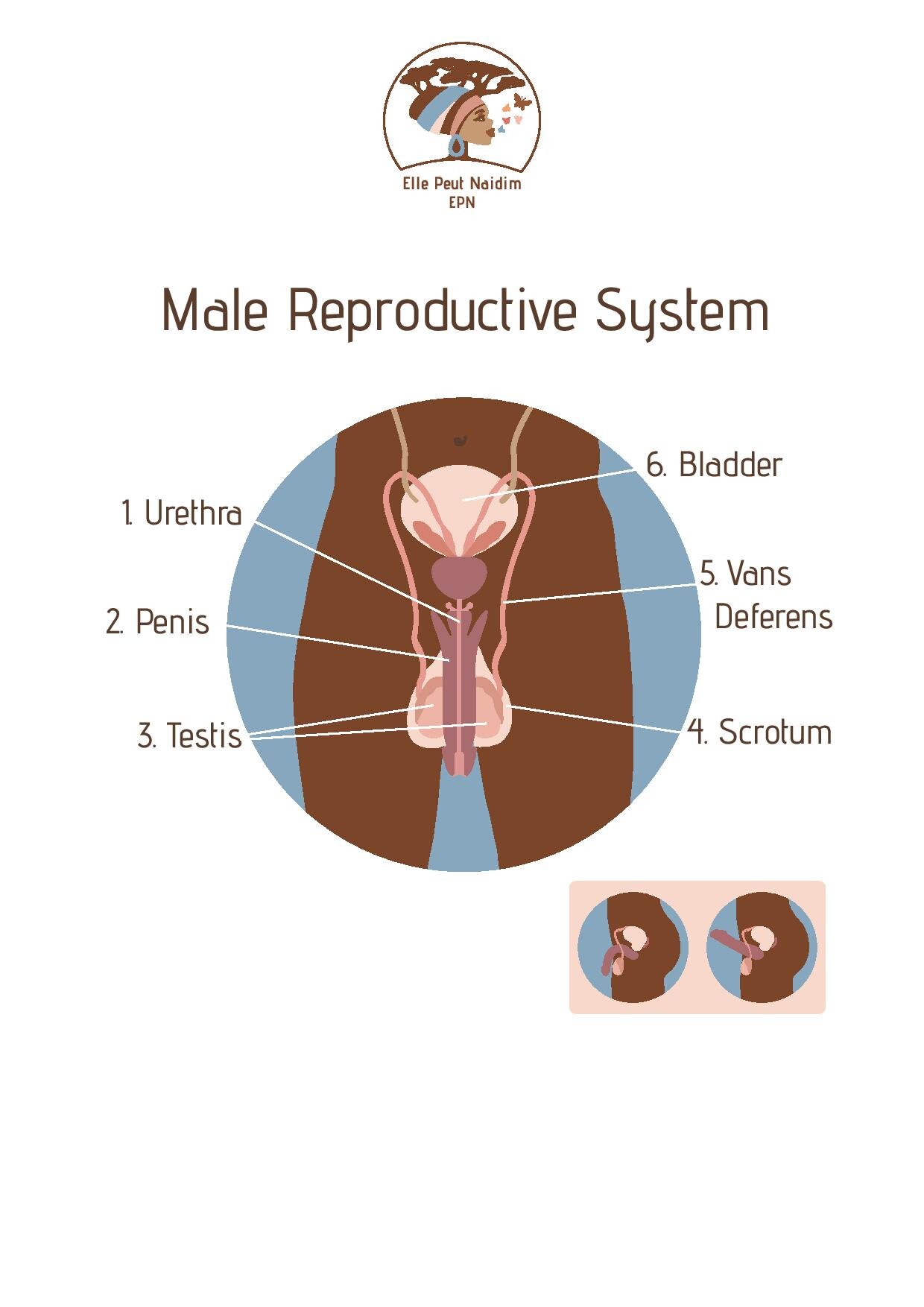
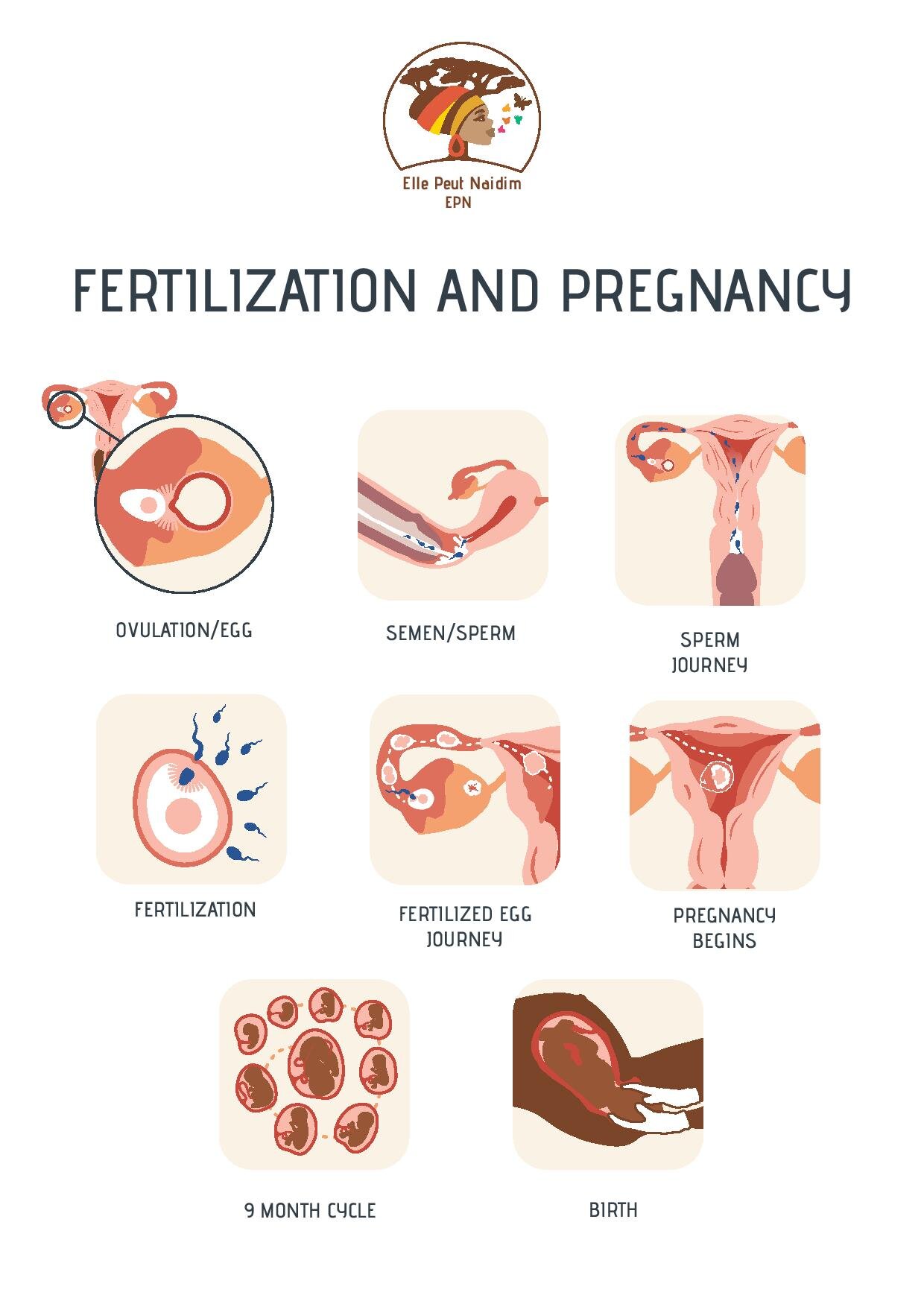

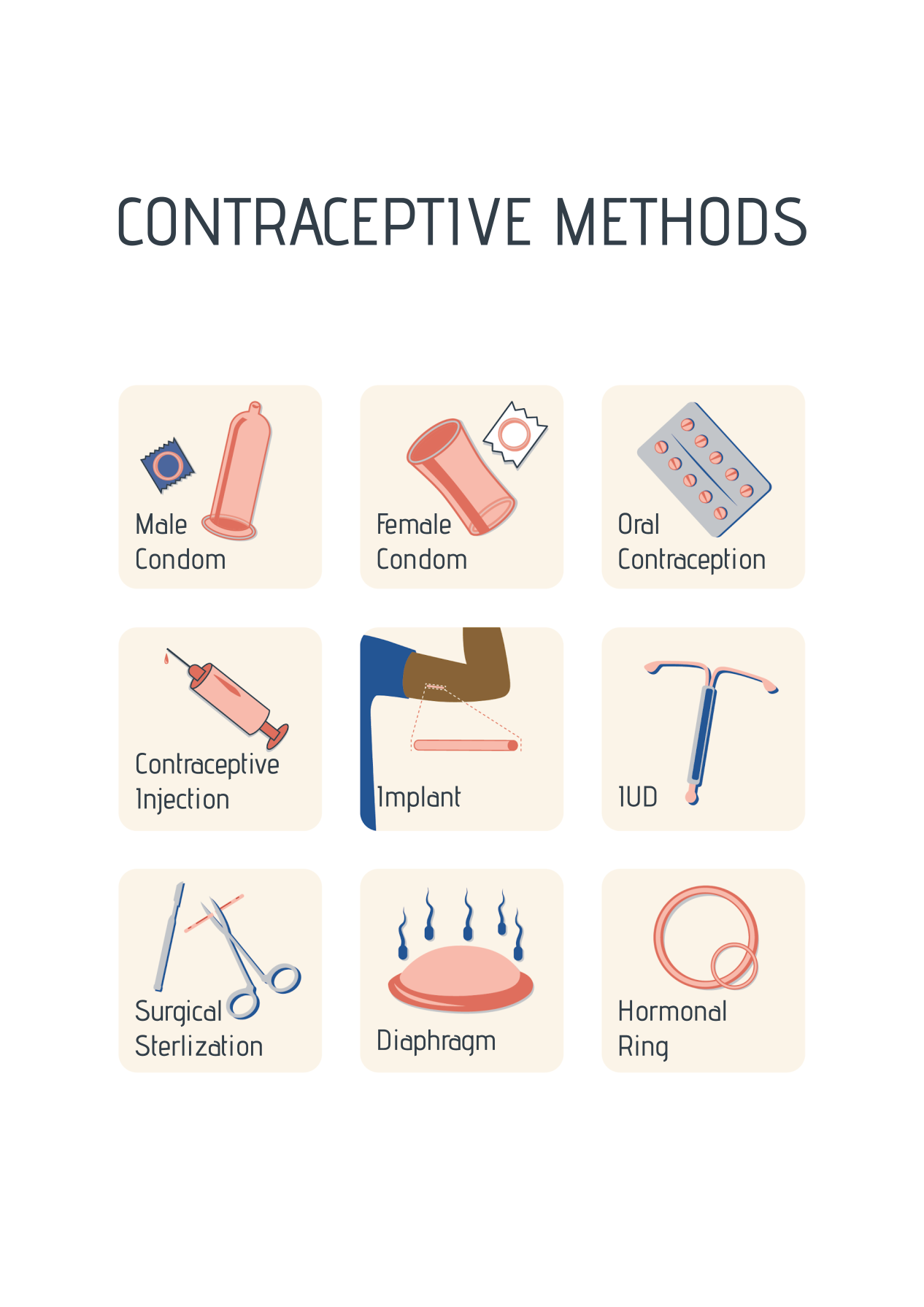
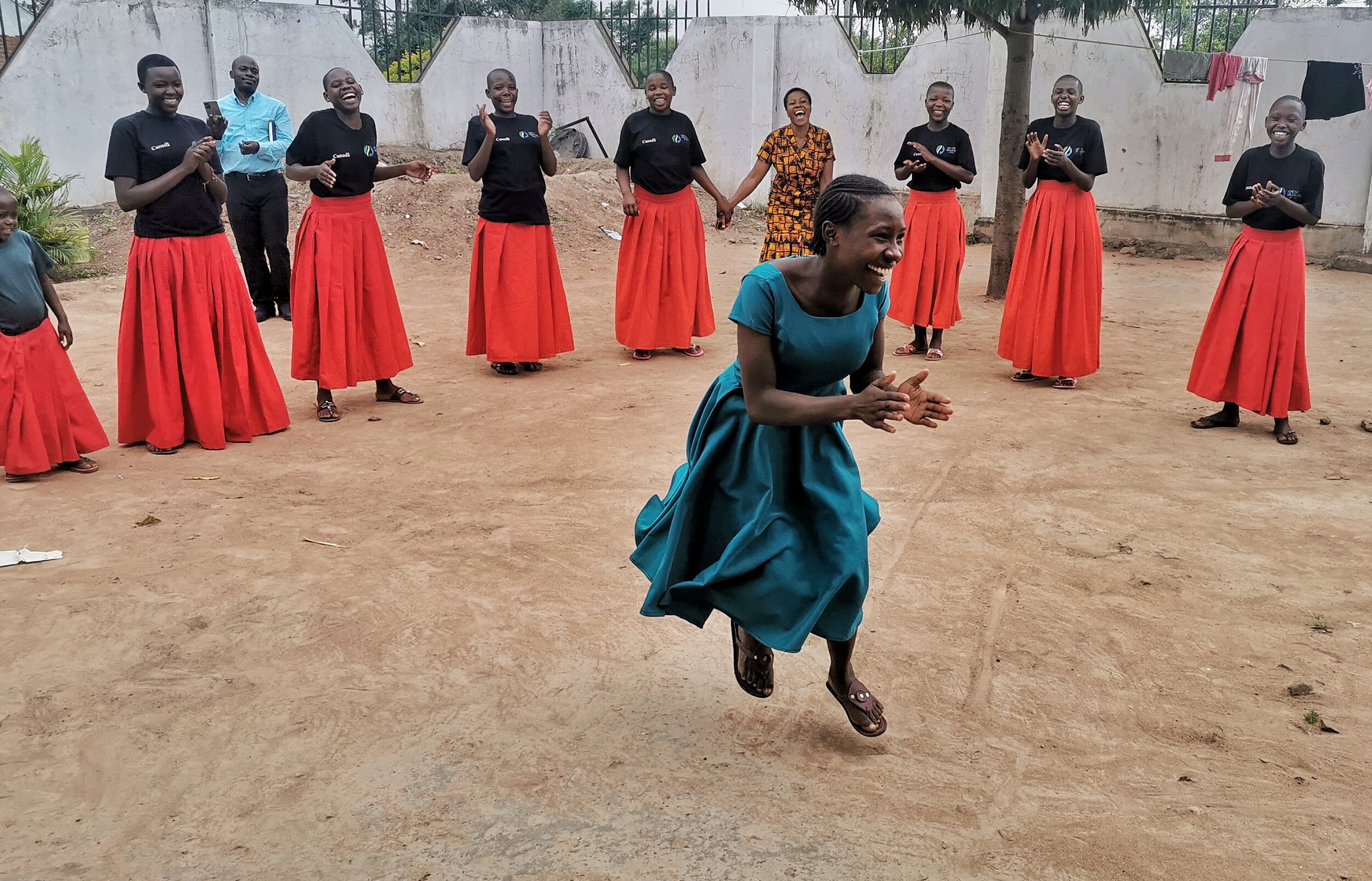
The Proof of Concept Affirmed that Education Matters. Period.
Education matters to attendance.
Girls who received the education campaign missed far less school in the two months between the Menstrual Health Hygiene and Management campaign and the administration of the follow-up survey.
The percentage of participants who missed school due to menstruation saw a dramatic decrease between the Campaign and the follow-up survey.
They missed less school because they had menstrual materials (29% to 0%), knowledge of how to use them, and knowledge about how to handle their cramps.
Education increased student’s comfort in using the menstrual material provided by most donors (reusable sanitary pads).
The use of reusable sanitary pads (RSPs) as the main method increased dramatically between pre-survey and RSP feedback survey administration for both home and school, and increased further between RSP feedback survey and follow-up survey administration.
Preference for nearly all methods alternative to reusable sanitary pads decreased.
Education decreased students’ reliance on less hygienic and more expensive menstrual materials.
Use of disposable sanitary pads similarly declined at home, and declined slightly less at school.
Old pieces of cloth were the most popular secondary method of menstrual management in the pre-survey, but steeply declined on the RSP feedback and follow-up surveys.
Preference for reusable sanitary pads increased by 58.4 percentage points, while preference for disposable sanitary pads decreased by 43.8 percentage points.
Education dramatically increased students’ knowledge about how to hygienically care for the menstrual materials.
Agreement with all measures of knowledge about caring for RSPs increased between administration of the pre- and follow-up surveys.
The biggest change can be seen in knowledge of how often to change RSPs to avoid infection (+24.5 percentage points), followed by how to properly clean RSPs (+20.9 percentage points).
Education dramatically increased students’ knowledge about knowledge and perceptions of menstrual health hygiene and management.
Agreement with all measures of knowledge and perceptions about menstrual health hygiene and management increased between administration of the pre- and follow-up surveys.
The kids love the class.
Participants reported their satisfaction with and their change in knowledge due to the Mimi ni Tai campaign on the post-survey. They were asked whether they enjoyed the class, how they felt about the teacher, whether they felt they learned a lot, whether they planned to continue using the RSPs, and much more.
On more than half of the measures, 100.0% of participants either somewhat or totally agreed. On all but one question, 98.3% either somewhat or totally agreed.
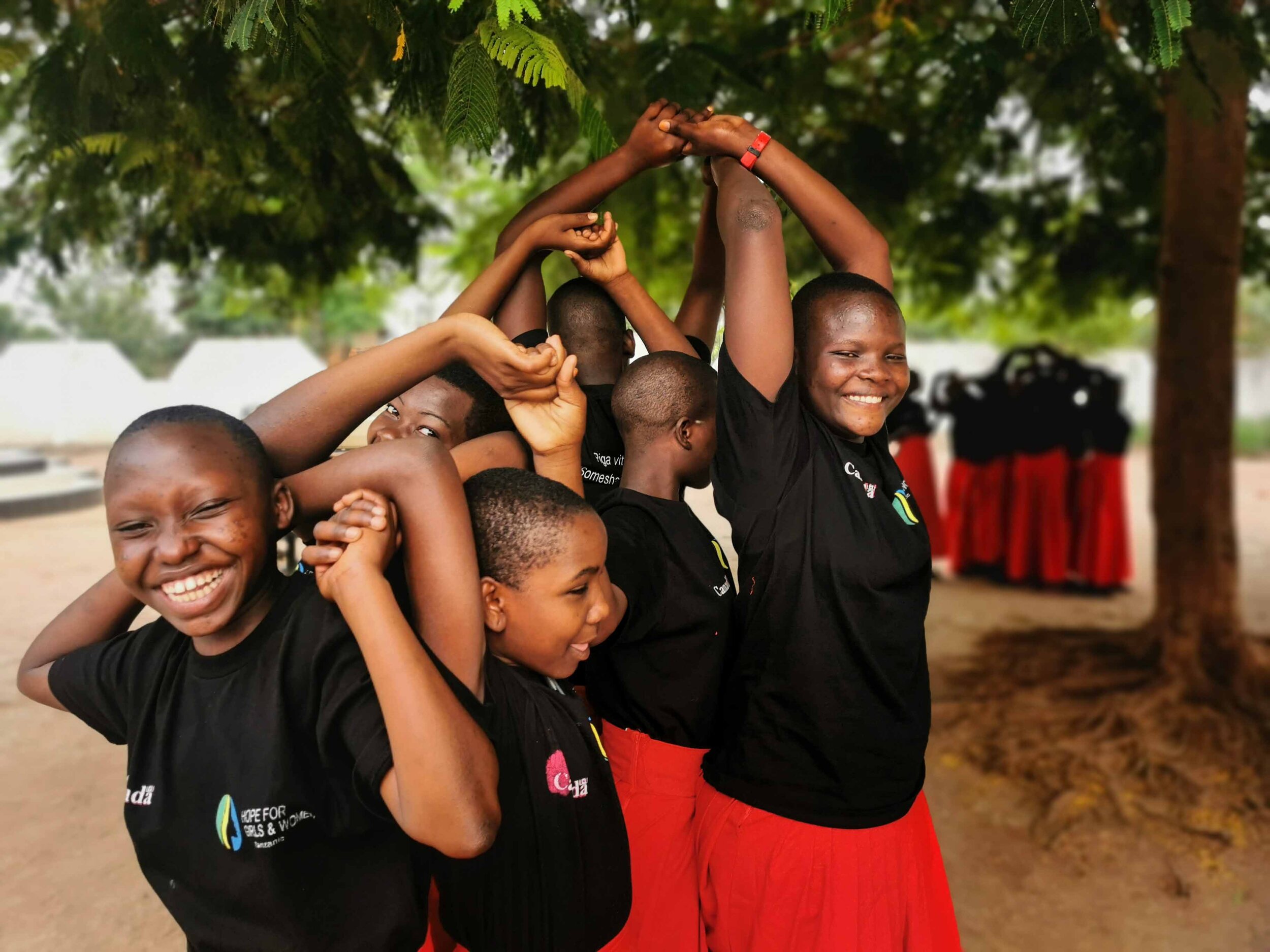
Elle Peut Naidim now offers its 90-minute “Mimi ni Tai” program for free to all students who receive menstrual materials from anyone in—or outside—the community. Together with our partners, we will have reached 6,500 students in just 11 months.
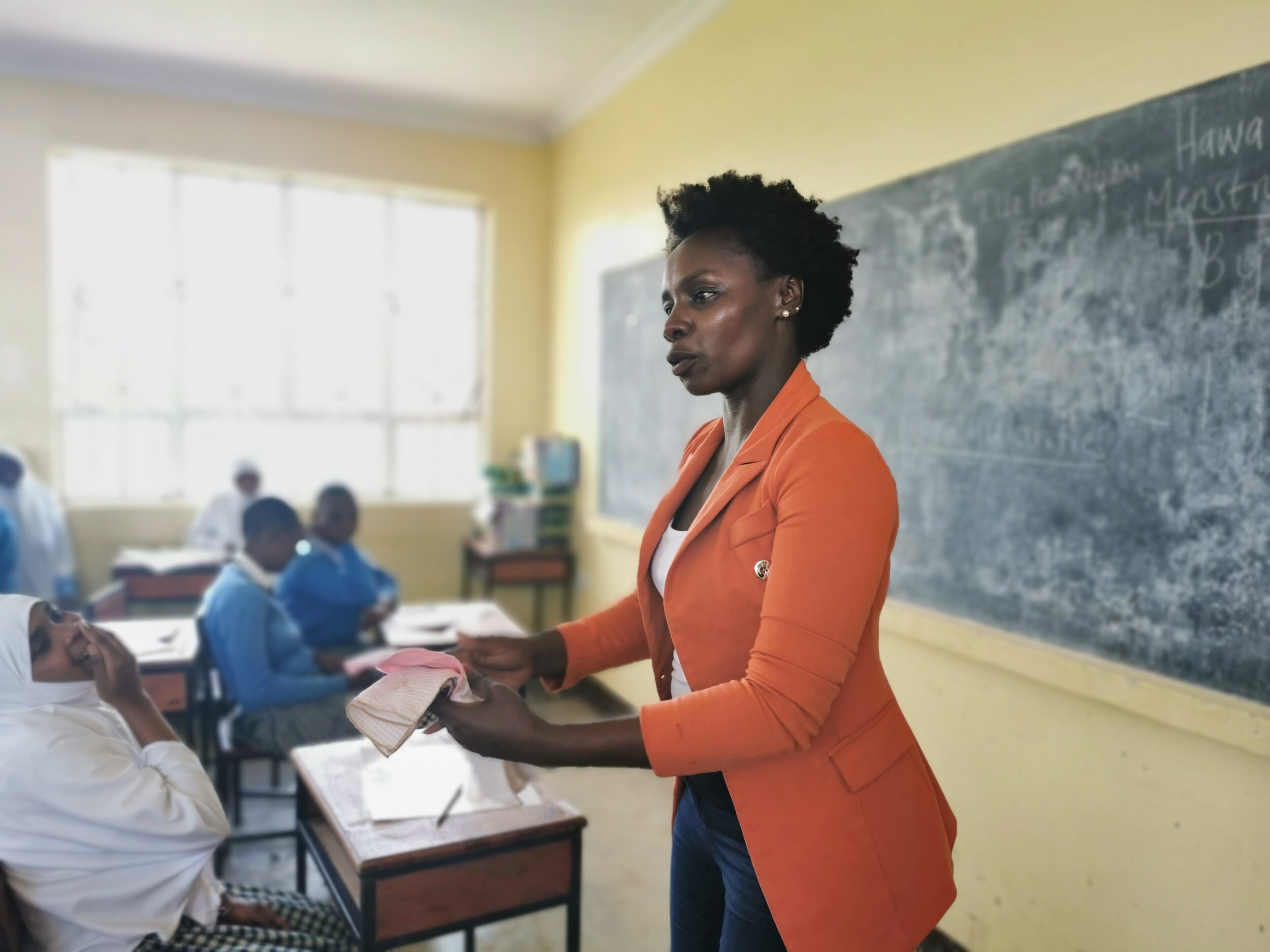
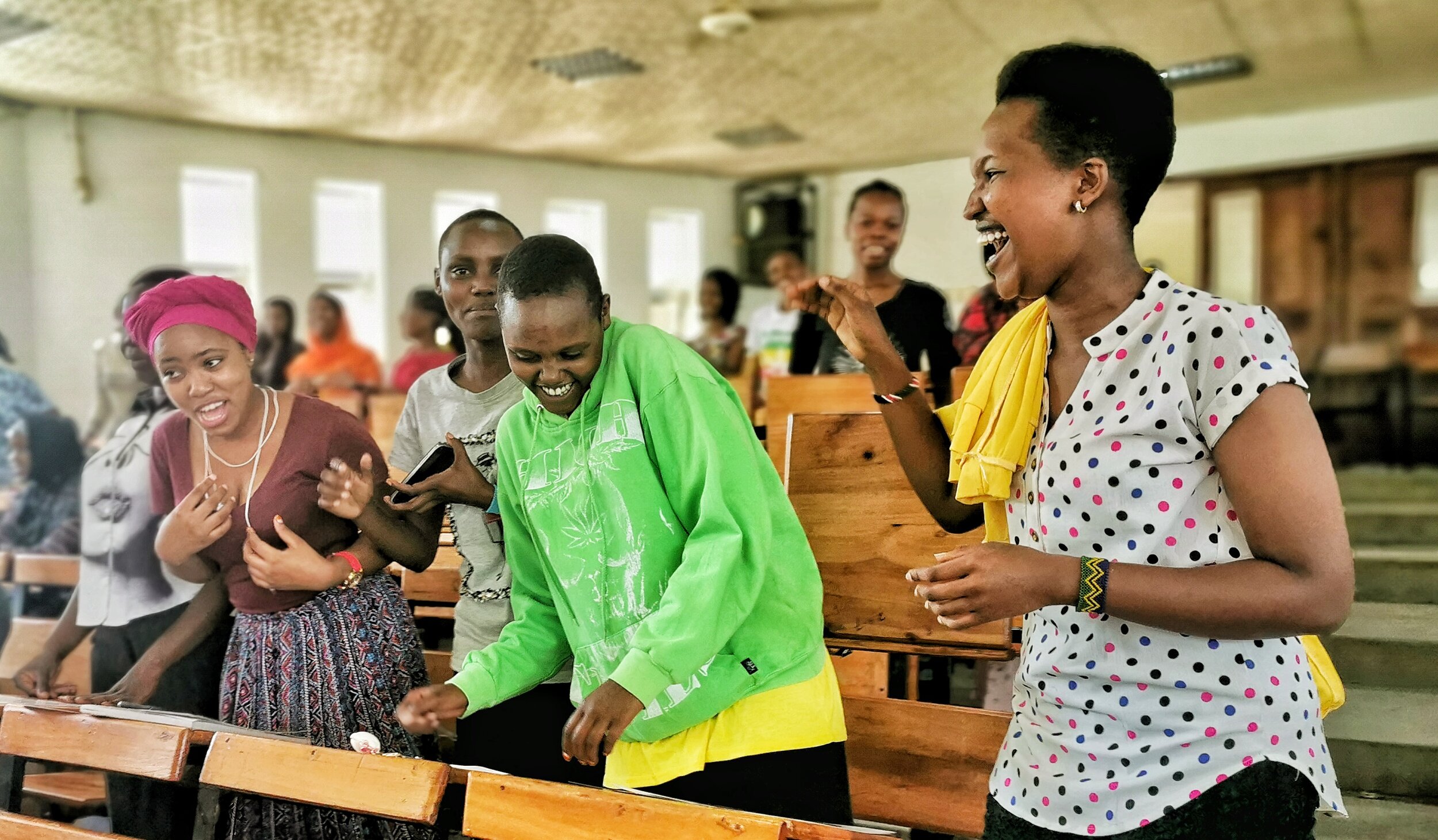
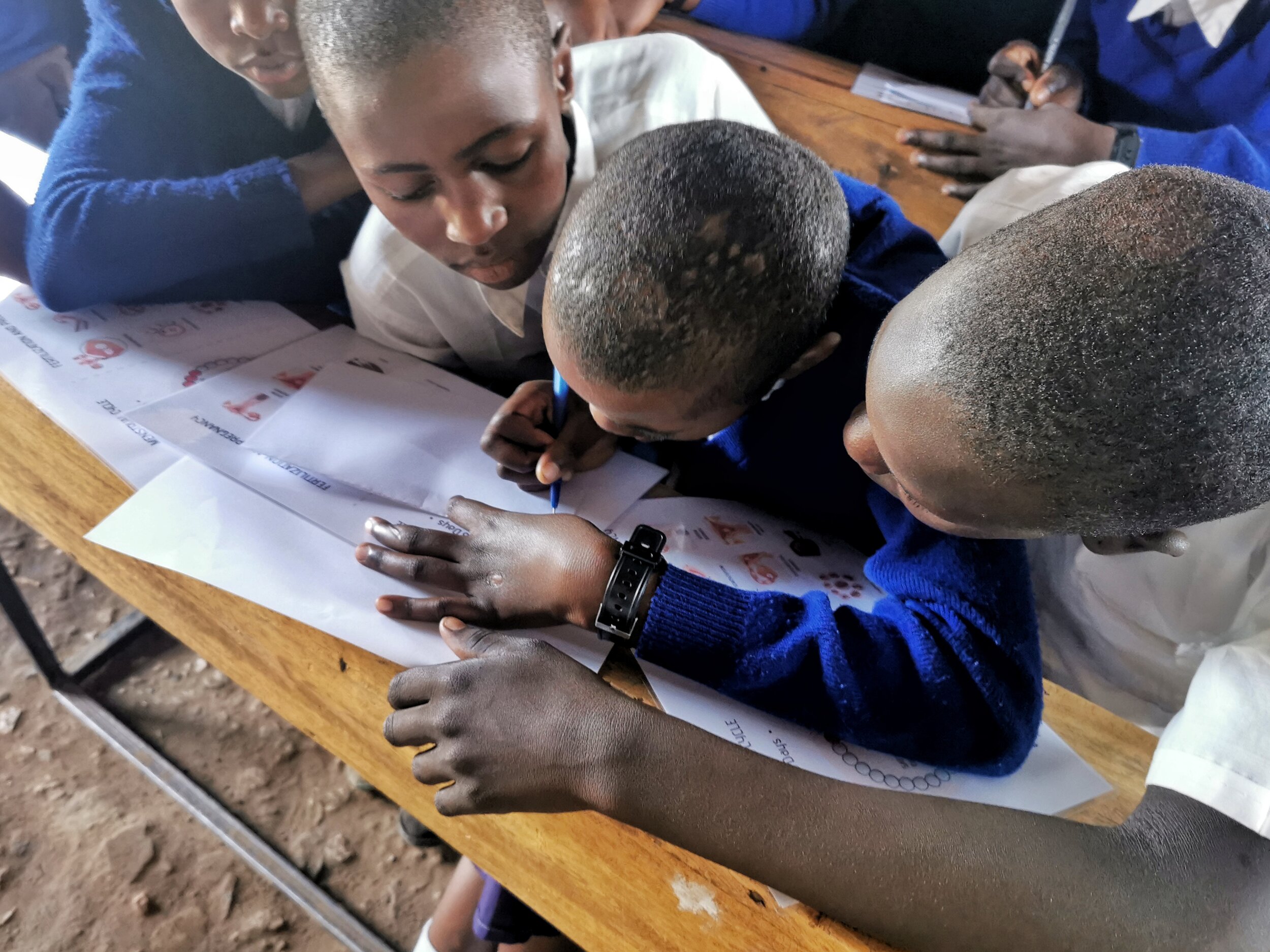
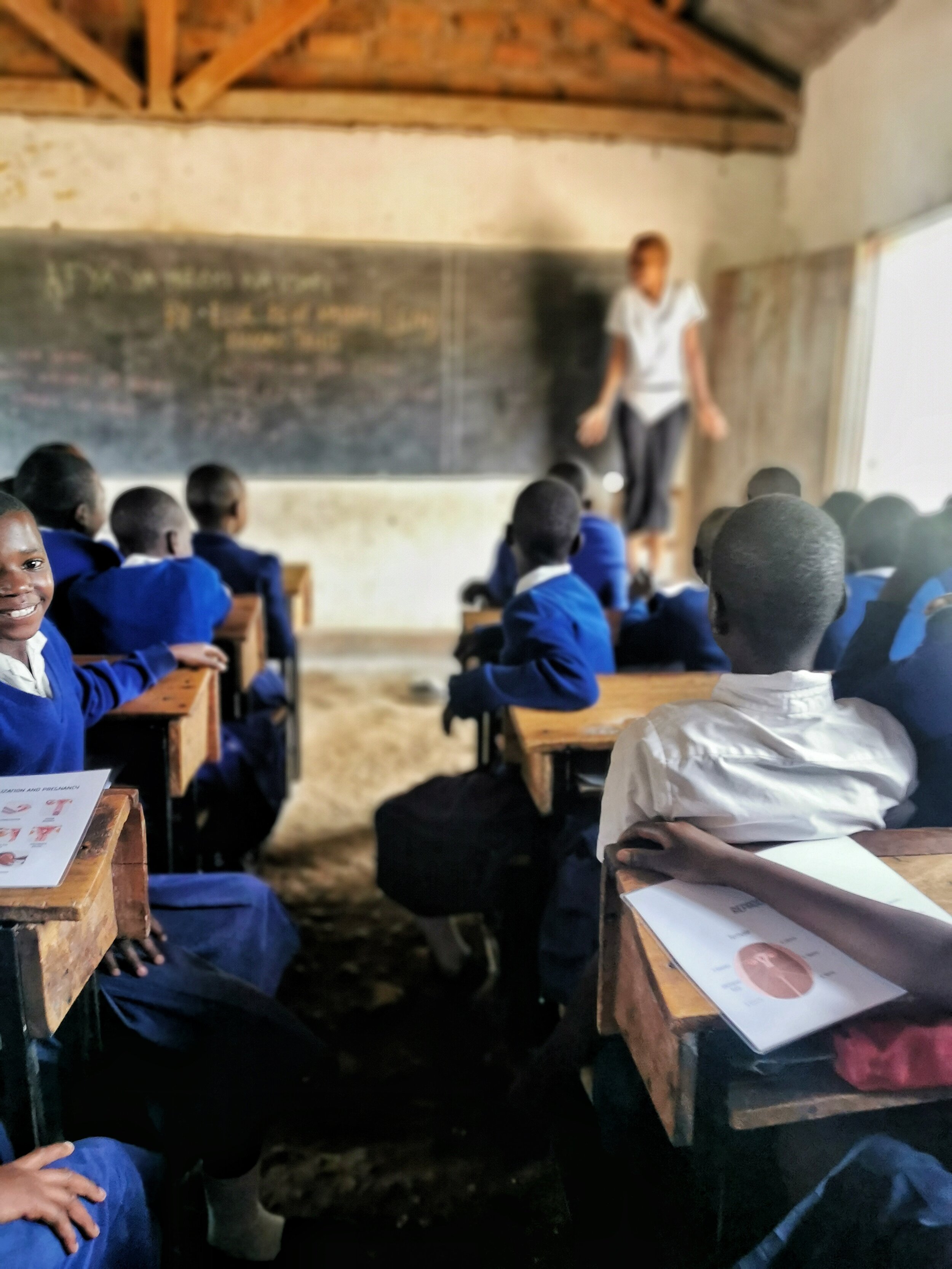
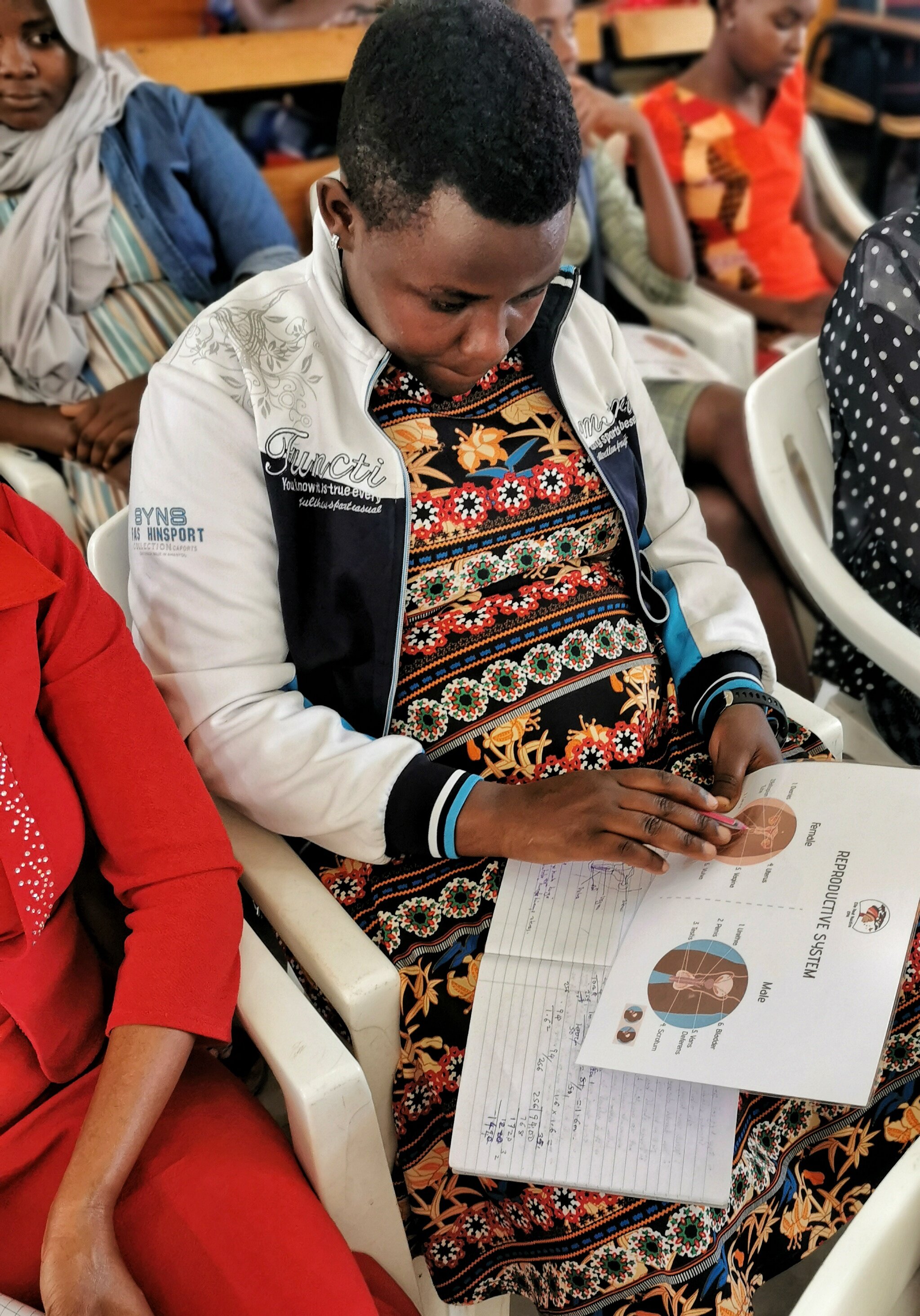

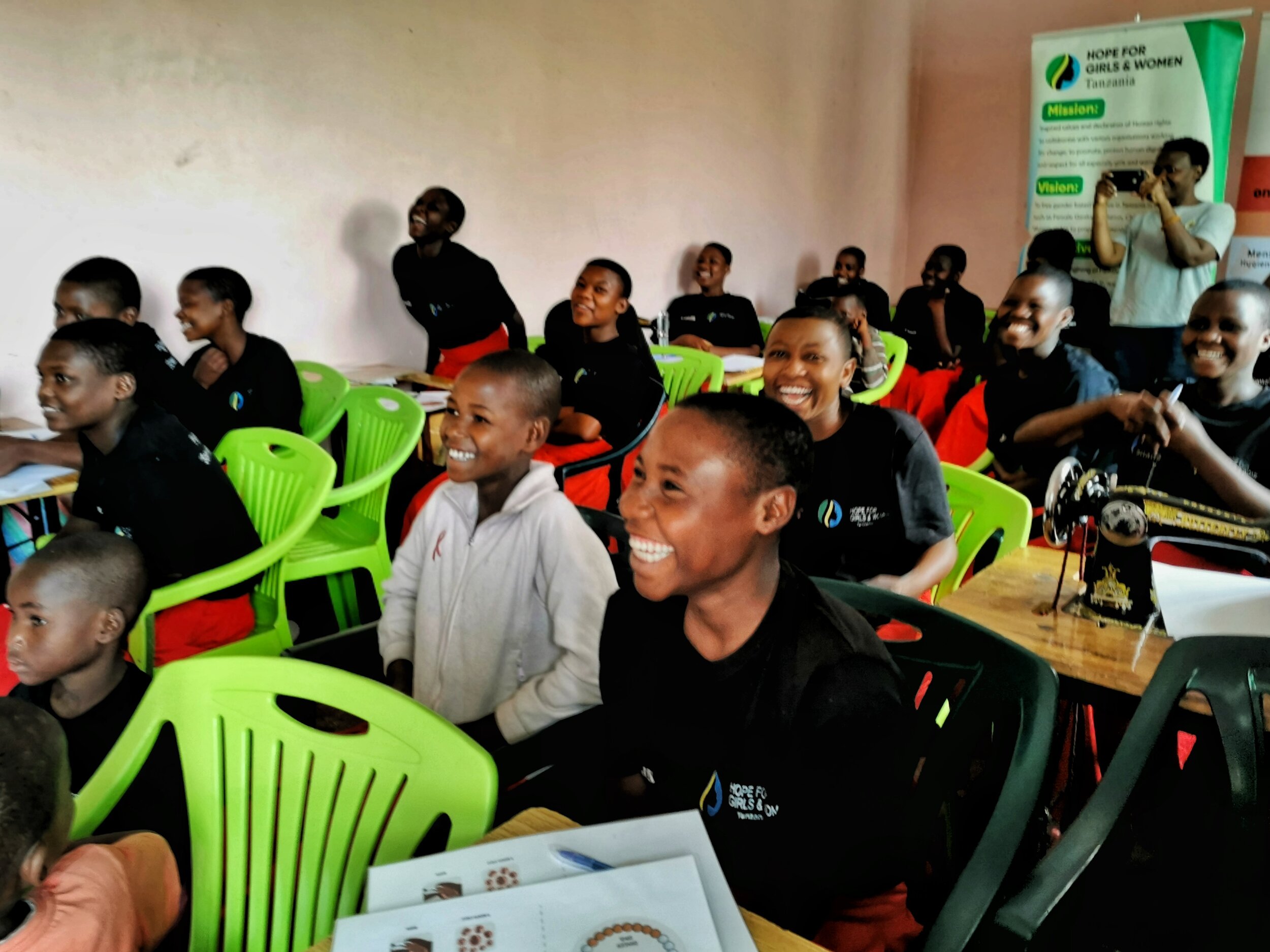




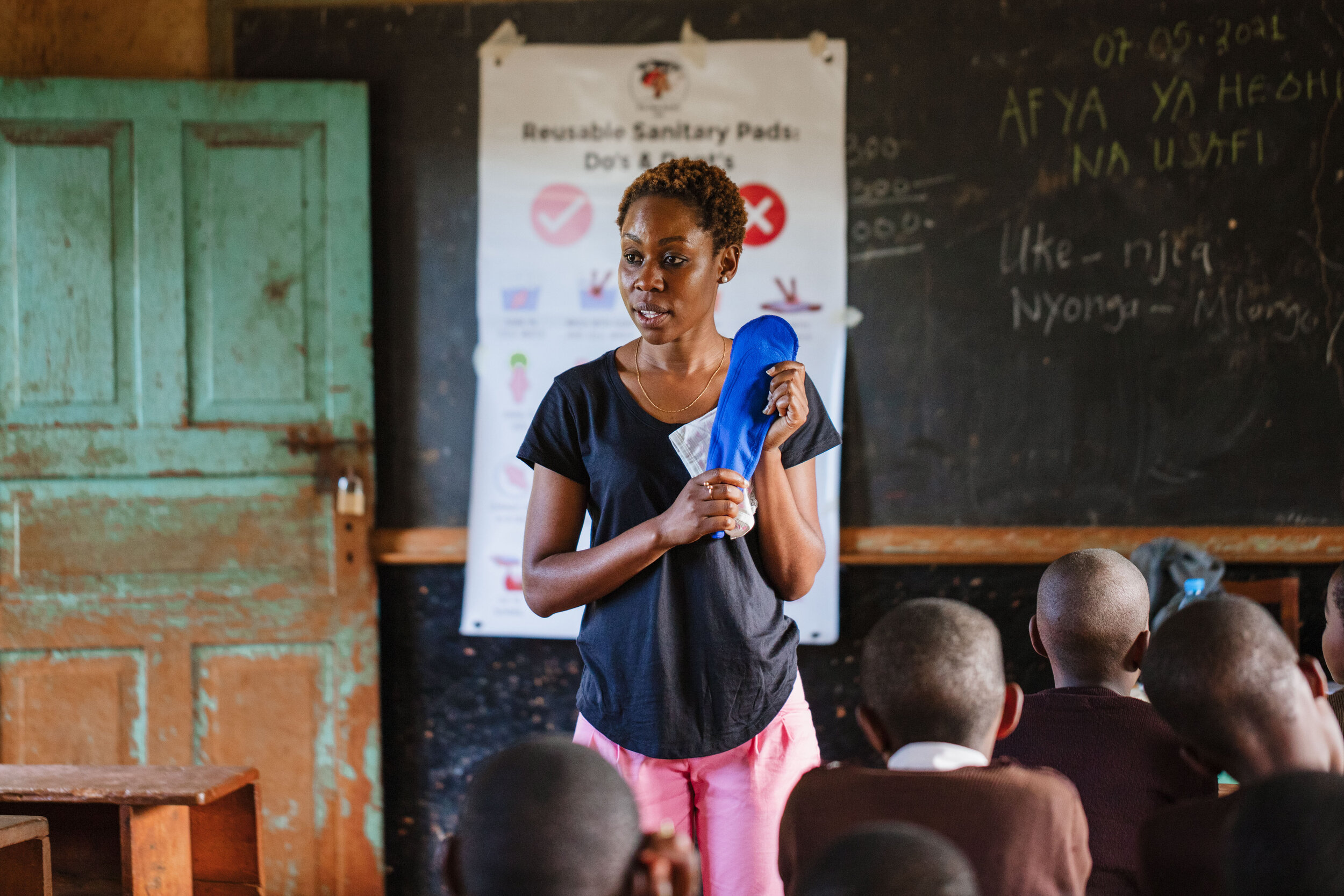
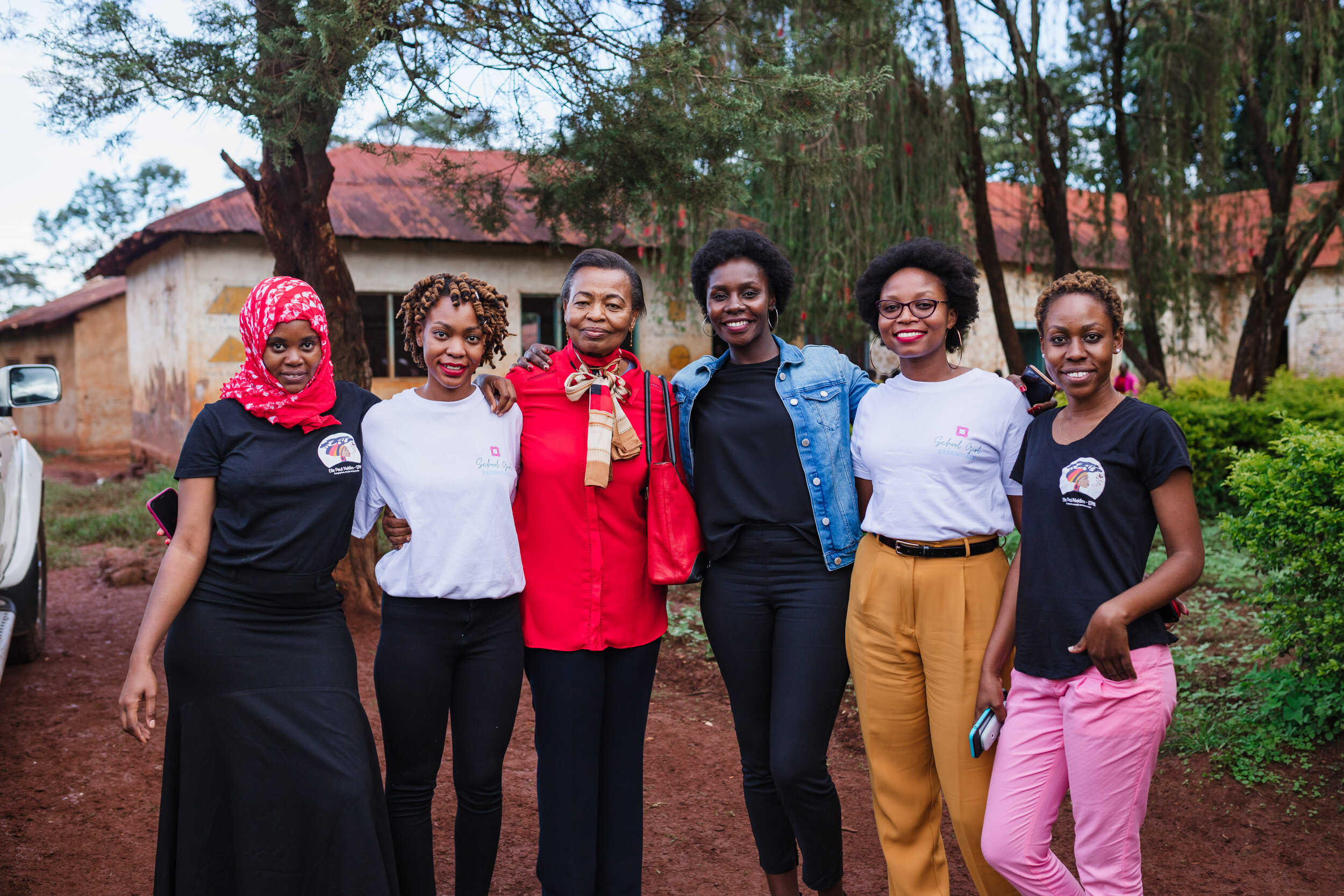



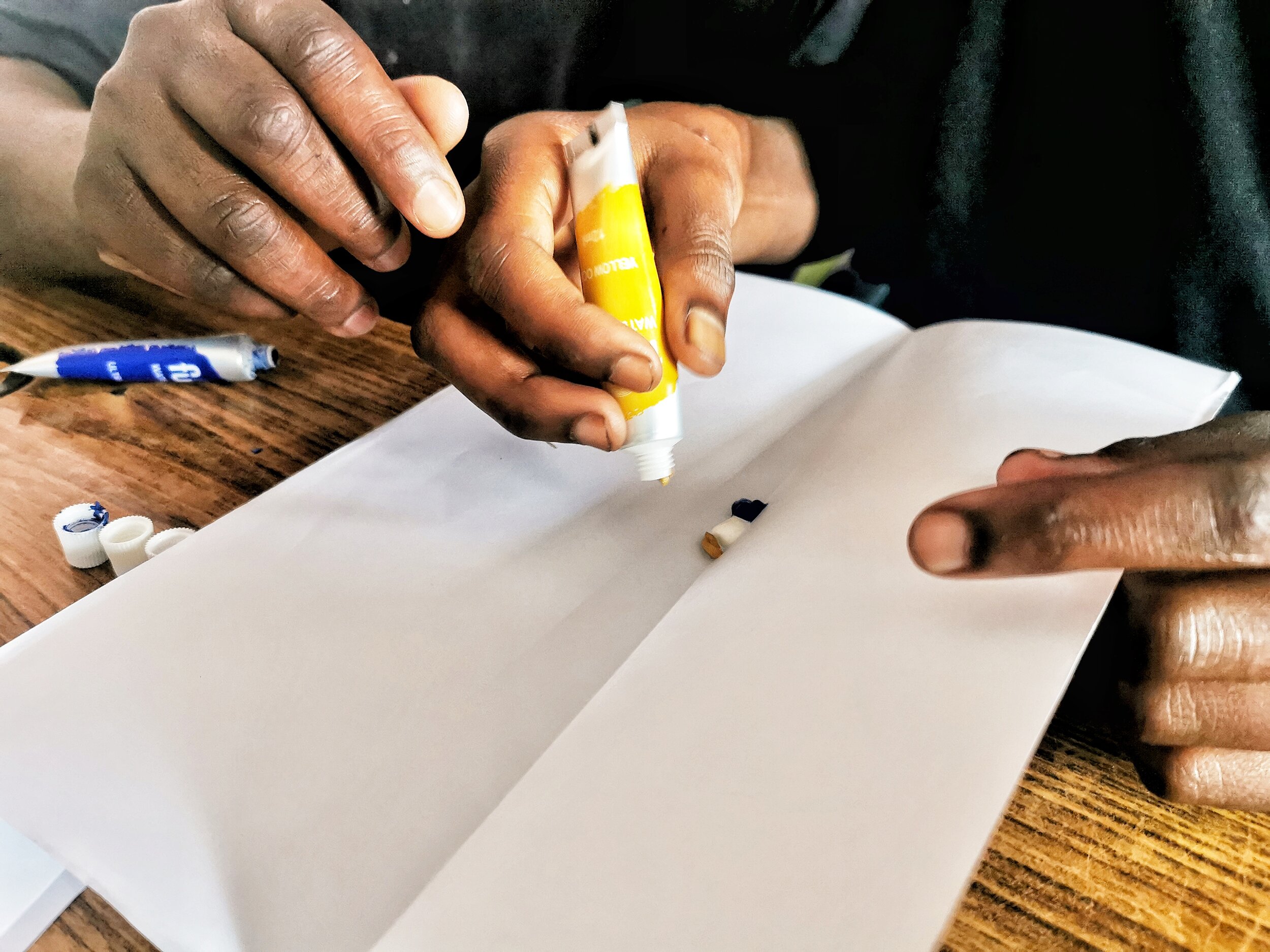
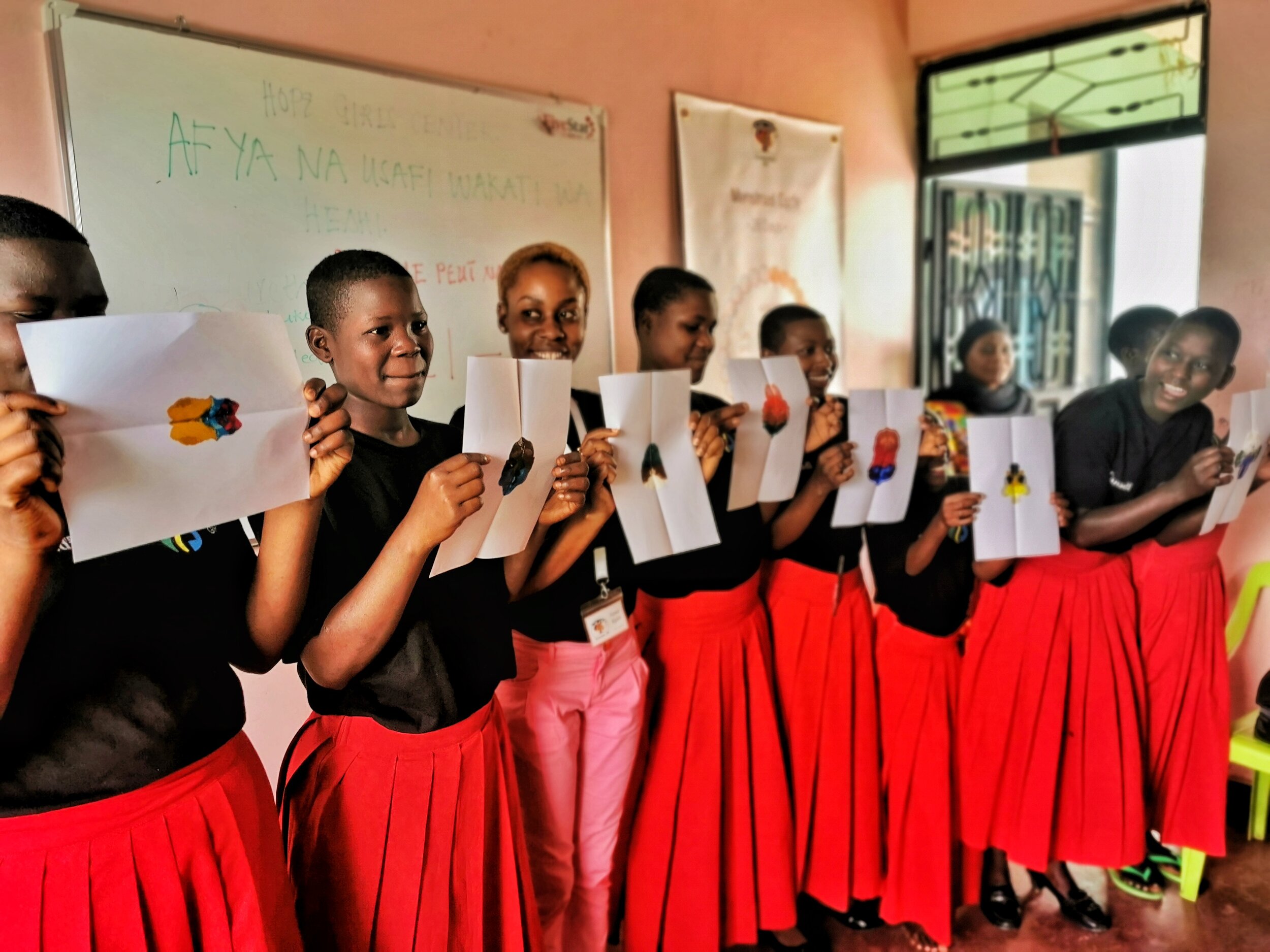
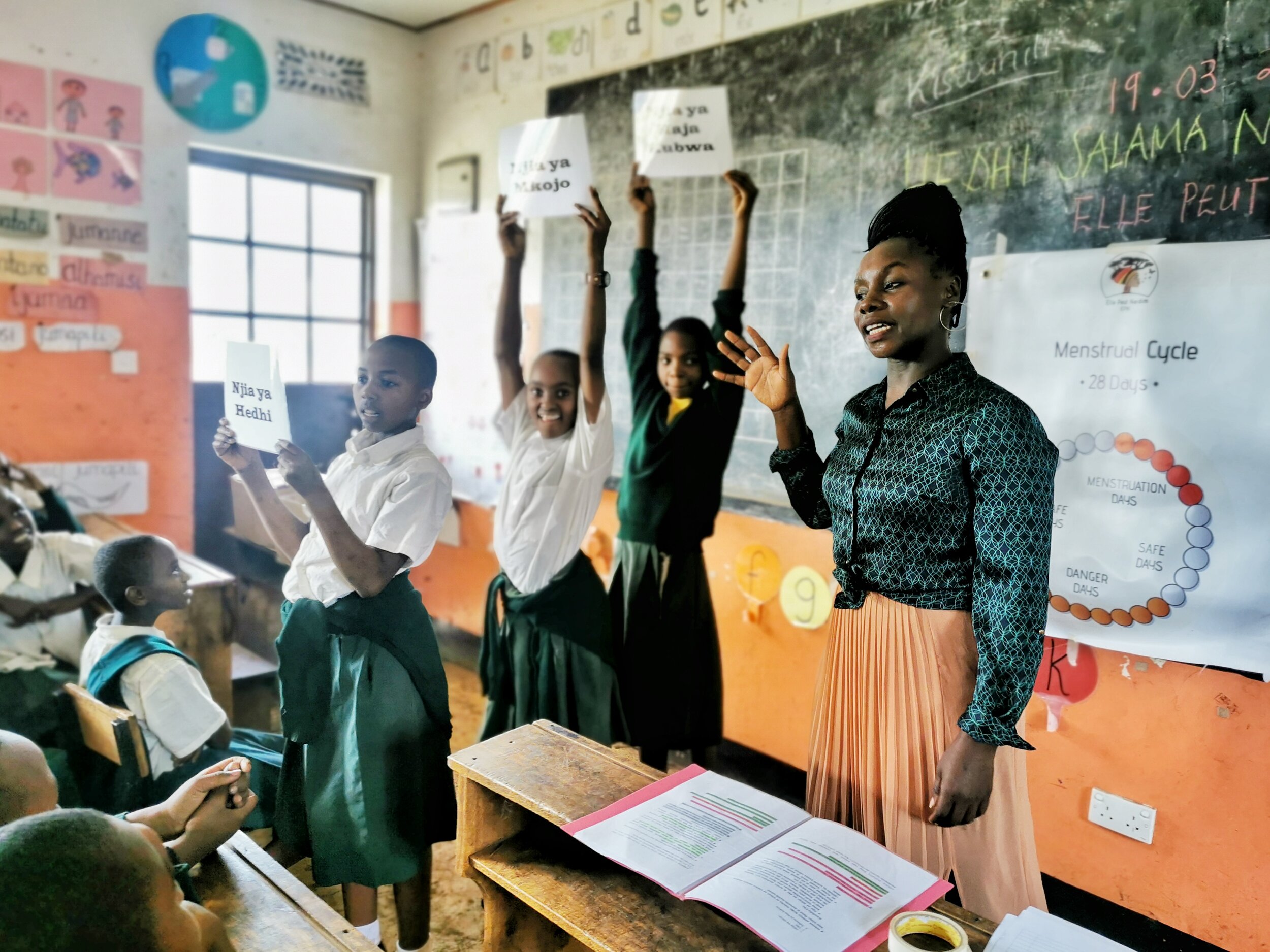
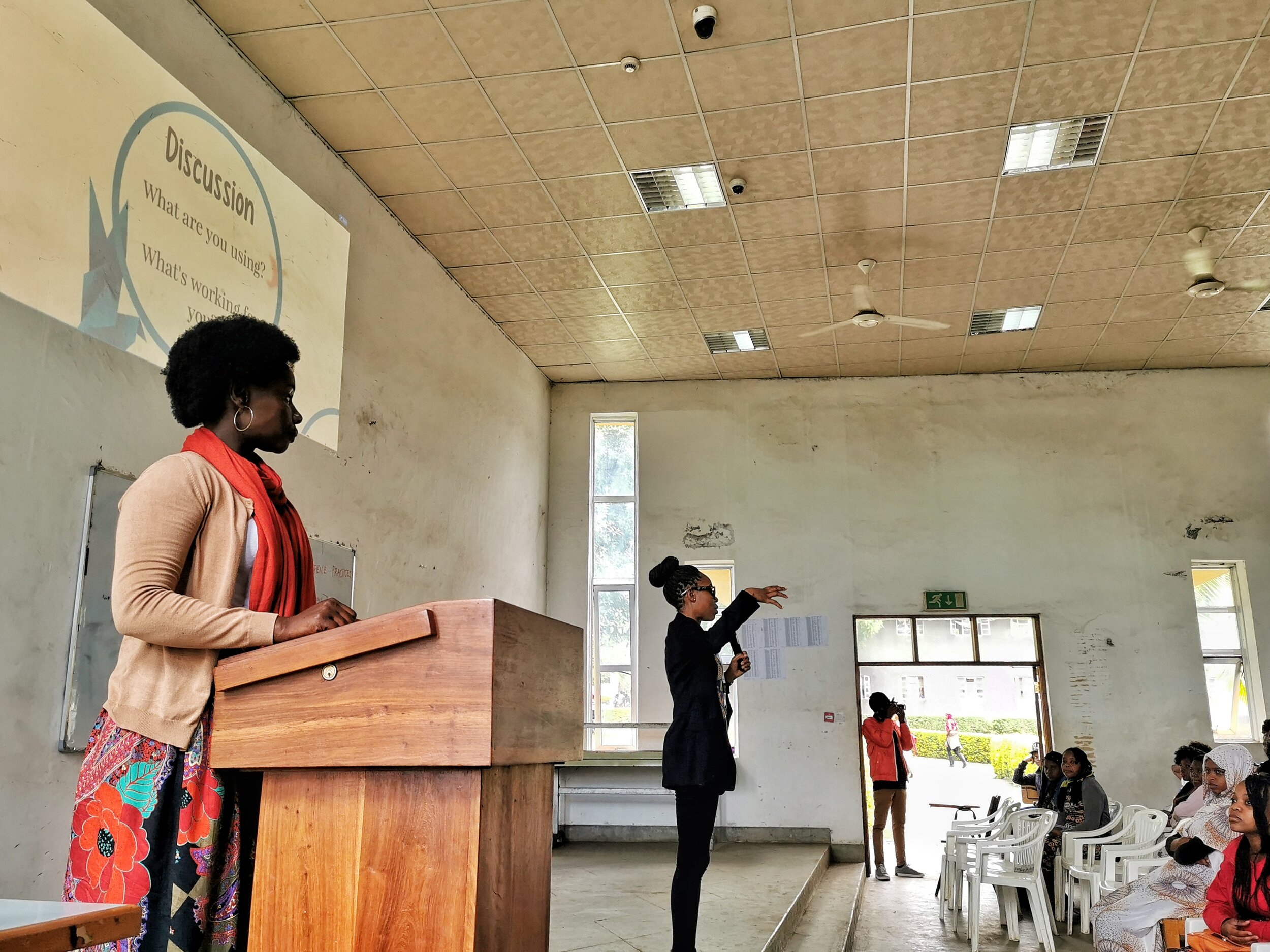
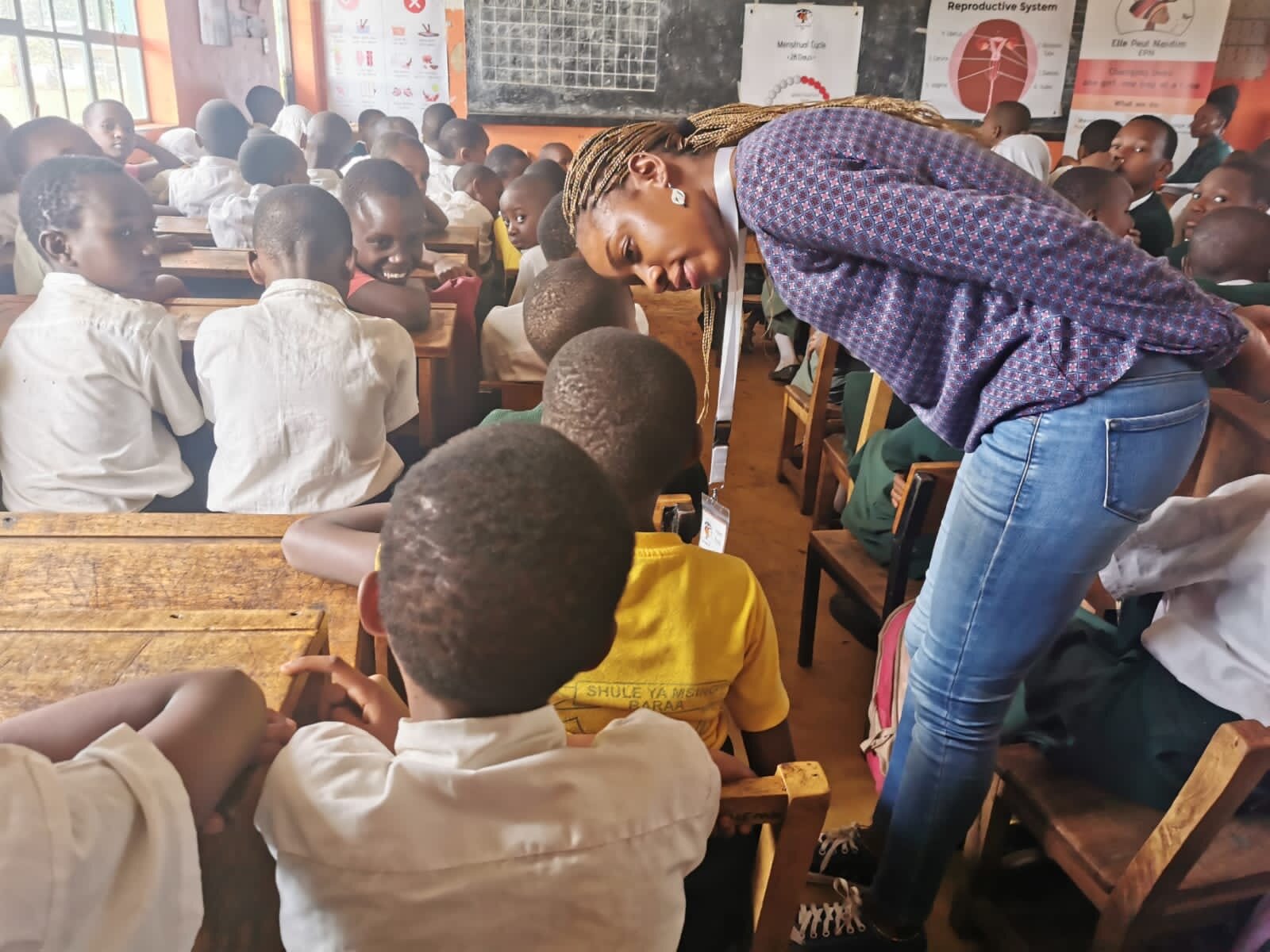
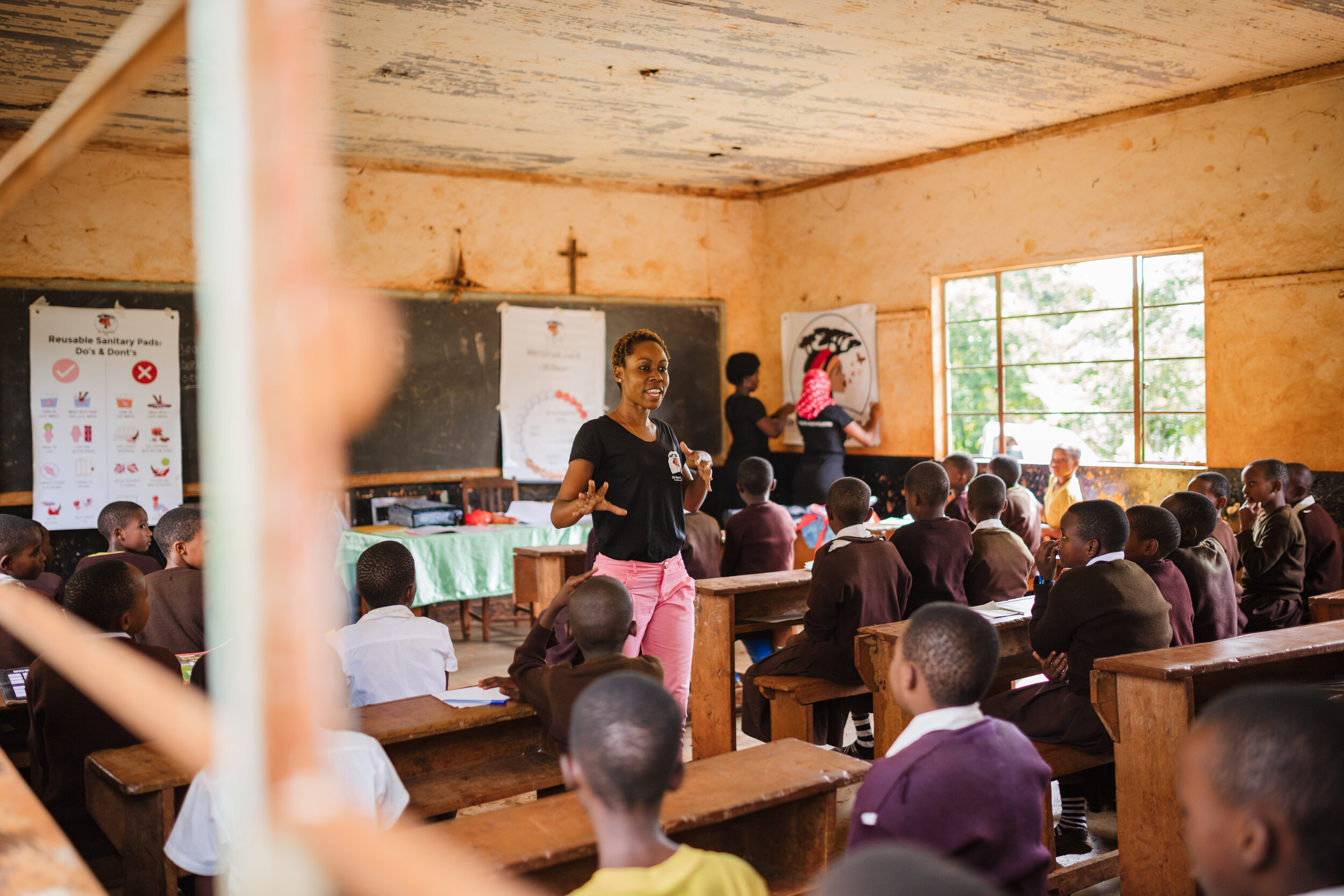
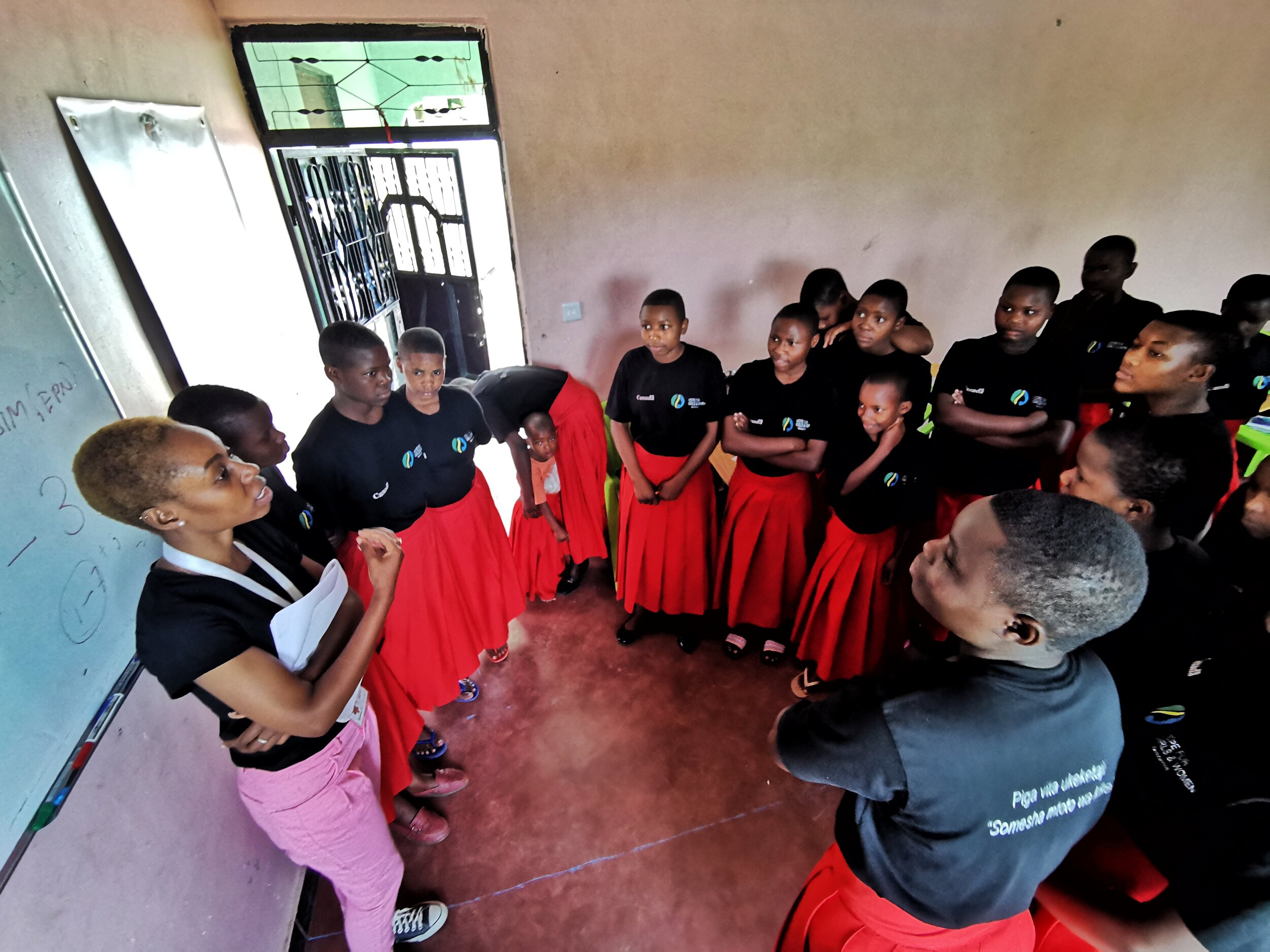
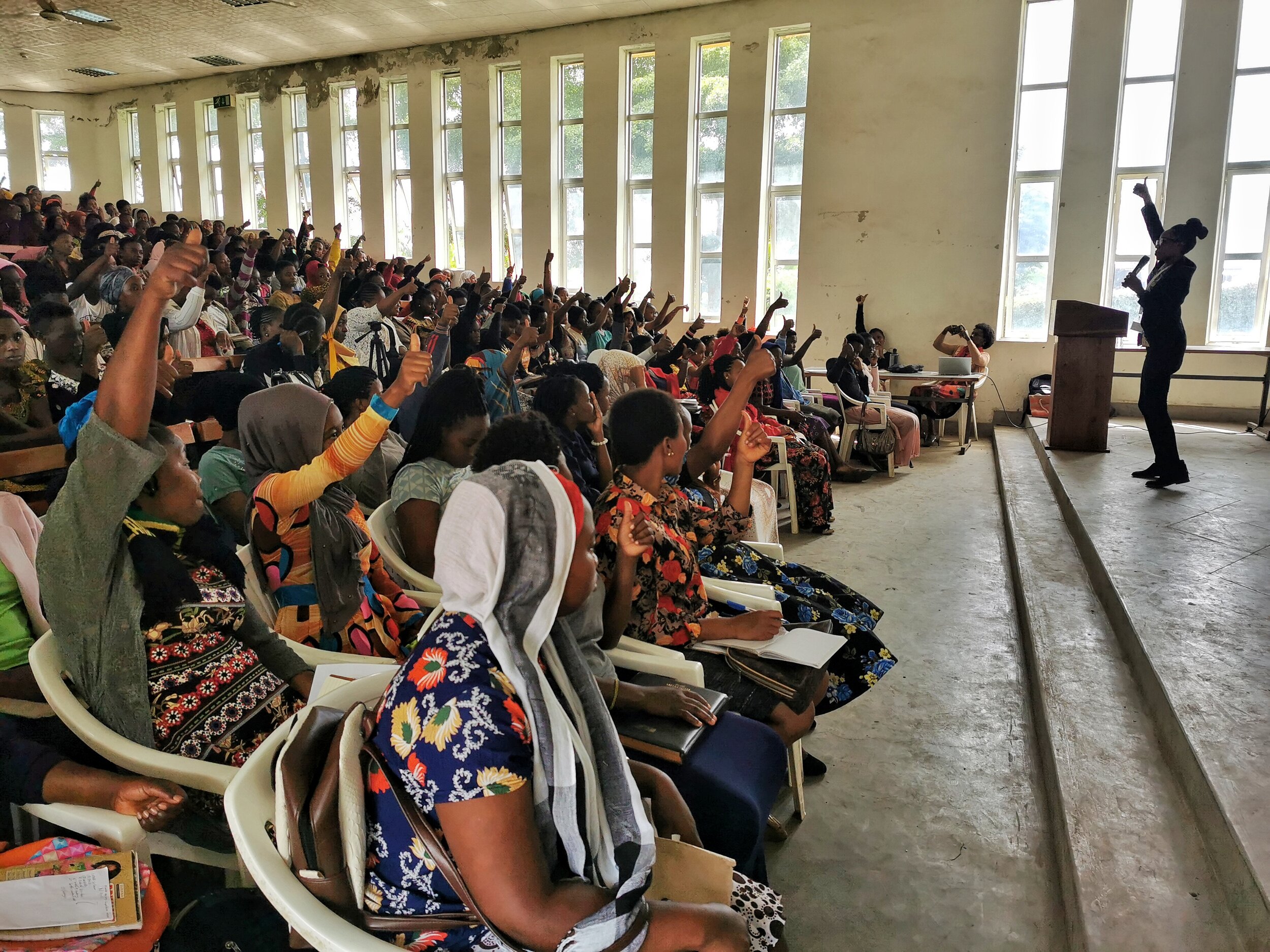

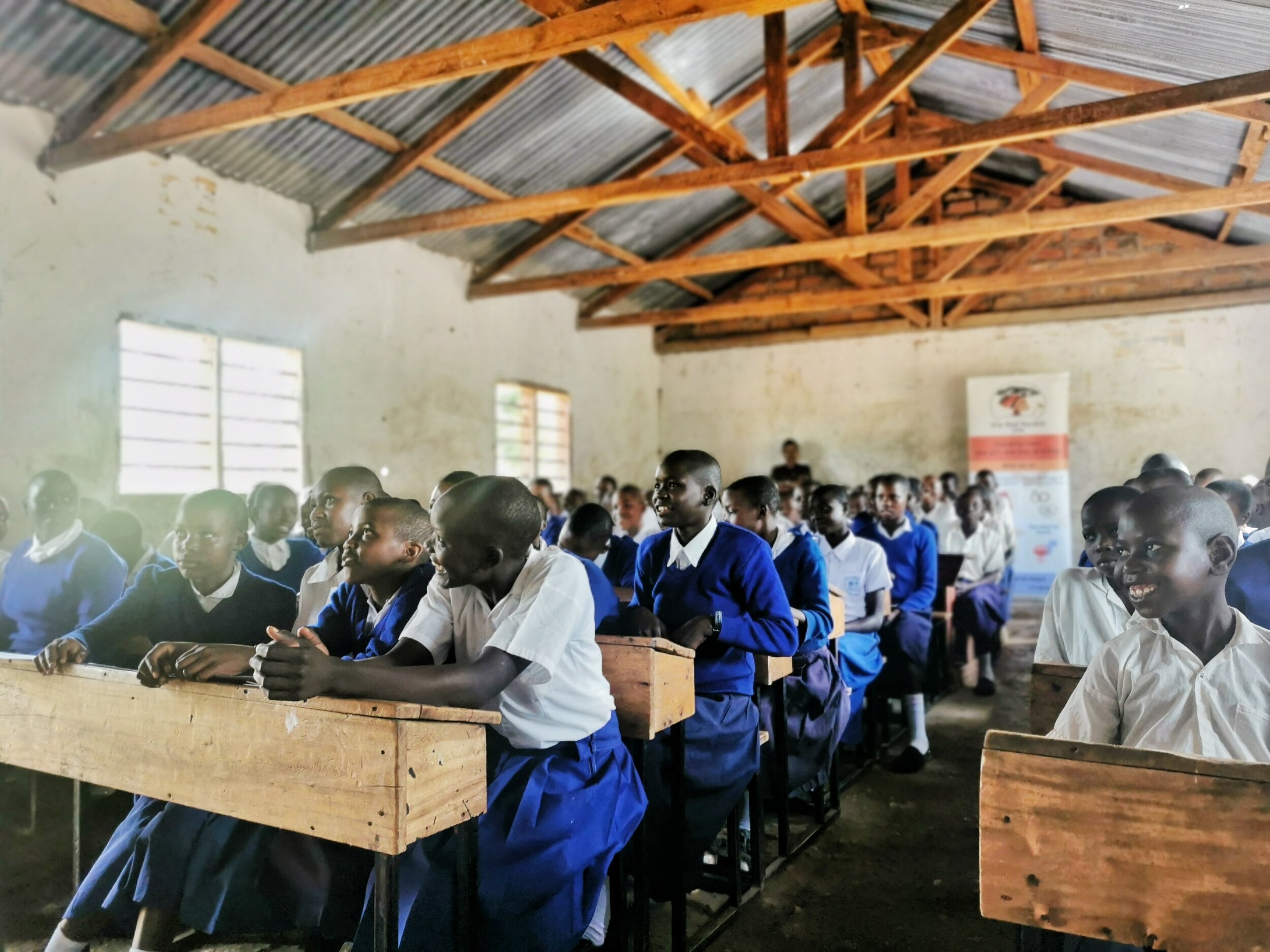
What people are saying about the program.
It has been a great honor for School Girl Essentials to partner with EPN. The organization came at the right time, when we were in great need of professional Trainers for Menstrual Hygiene Education to our beneficiaries. We have gotten a lot of positive feedback from the schools that EPN has offered the training and indeed it is such an impactful partnership. SGE is one of the fastest growing nonprofit organizations that works to support school going girls in Tanzania with menstrual pads, but lack teaching resources including trainers. EPN came in handy and truly, this has raised our bar very high. We can not wait for our partnership to go even further than where we are right now.
Zion William, Founder of School Girl Essentials, Partner Organization
As a volunteer for the EPN, my most valued lesson were the practical, user friendly, impactful and sustainable solutions on dealing with the Menstrual Health and Hygiene. It's heartwarming to know that a simple thing as a sanitary towel and education program would change someone's life forever; and I am certain that lives have been changed for the better for I have witnessed first hand the positive change the EPN has brought at the schools where I had volunteered.
I consider myself very fortunate to have had the opportunity to learn from the best.
Neema, Volunteer
I have witnessed such a wonderful Menstrual Health Education Program from EPN. The program carries a crucial knowledge and information that I wish every girl in the country could have access to it, and you guys are doing a wonderful job to communicate that.
It was well designed and organized: each activity in the schedule was placed in a very thoughtful manner. The teachers/facilitators - Ruth and Hawa couldn't be more perfect for the job. They were energetic, full of passion, with enough knowledge, experience and additional skills on how to deliver all that to their audience. Hannah was such a star coordinating all activities before, during and after the training; she has so much dedication and organizational skills, and she didn’t leave a single detail/activity untouched.
Hellen, Nomad Tanzania, Partner Organization
I found out about EPN from a friend. She told me about the problem they were trying to solve and the program outline.
I was almost in disbelief about the scale of the problem and was hopeful that my support might help slightly improve the situation. But then the statistics of people served started rolling in.
And then the photos and videos of hundreds of girls and women packing classrooms to hear the program followed the statistics.
And I realized that my support for EPN was the most impactful and cost-effective charitable donation that I’d made in my life.
Joel, Donor
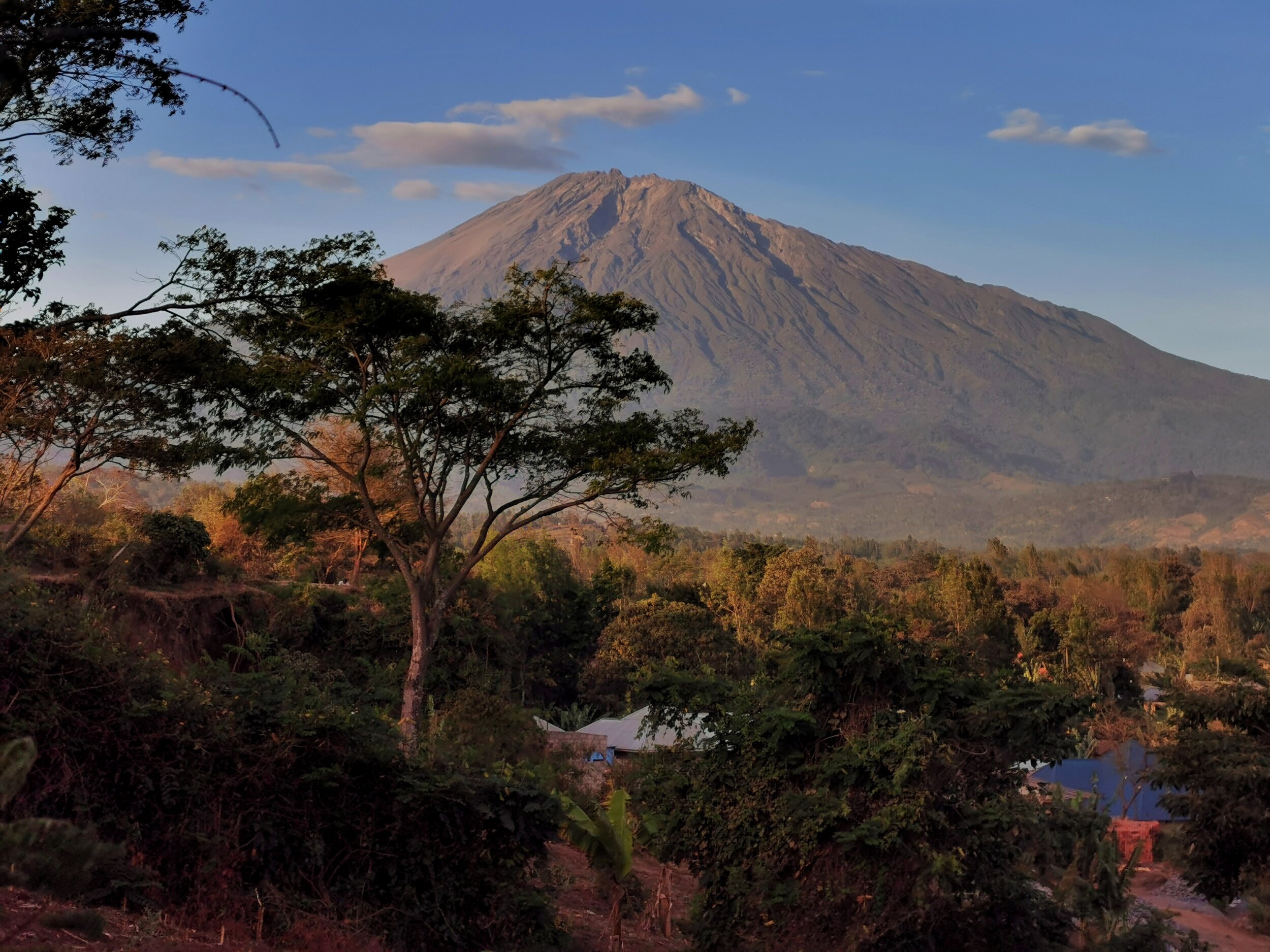
What people are saying about the leadership.
The thing that our EPN team will never forget about Hannah is her enthusiasm about school children. We felt she was one of us (Africans), because Hannah could adapt to any environment, despite its location, and its culture.
When she was with EPN in Tanzania, she had a leadership spirit, and was always an informative key point person. We will always cherish and treasure Hannah company, team work spirit, leadership and hard work, when she was with us here in Tanzania.
Resiato, Volunteer
As a newly formed Rotary Club looking to support women’s empowerment and opportunity in a largely male dominated society, we found ourselves trying to start up a sanitary pad project for local school children. Sharing my ideas with Hannah, it became instantly apparent that here was a professional project organiser who was able to listen, advise and organise. Hannah does not stand still and sets achievable goals - and meets them - in a short space of time. The Einoti Secondary School pads project was the last Project of the year to be presented to our club. It is no accident that it then turned put to be the first project completed. This is down to Hannah’s efficiency and tireless desire to get things done!
Phil Bowen, Head of UWC / President of Rotary Club, Partner Organization
I've been part of the Elle Peut Naidim team for a year now, and during that time I've been astounded by the quality of work that has been done, both behind the scenes and on the ground, putting our program into action. During that year, the program's goals and priorities shifted significantly as we sought to meet our students' needs and deliver high-quality, meaningful education that would have a true and lasting impact on their lives. Hannah's vision, dedication and leadership led us every step of the way. Hannah is a relationship builder and strong communicator; throughout our work, she brought in amazing experts to work on the specific needs of the program, from curriculum development to program evaluation to grant writing and lesson implementation. Her communication style is frequent and direct, which kept our team on track in our weekly planning meetings, as well as in between these calls. When a need or challenge arose that required our attention, Hannah was proactive about bringing them to the group, allowing us to work swiftly to meet the need. Her flexibility and dedication have kept our team on track, allowing us to work collaboratively across continents to build a program that, in just a few months, has already begun to reach hundreds of students across Tanzania.
Alex Gingerella, Lead Curriculum Developer, EPN
One of Hannah's gifts to the world is enthusiasm - there is no question, problem, or opportunity too immense or daunting to be met with an abundance of it. Throughout my time working with Hannah and EPN, I have been met with zeal for the work - even the nitty gritty details and uncomfortable bits that are inherent to any project. Every task is met with the utmost attention and care. As an evaluator working remotely, this type of approach to a project from the leadership is invaluable.
Hannah well serves the role of the champion for any project that needs to move from idea to action.
Jaime Gilliland, Monitoring and Evaluation Lead, EPN
I am thankful that Hannah has allowed me and my career to be in her full arms, heart and brain. Hannah is an incredible coach, leader and mentor. She has changed my life in multiple channels, including professional changes, and mental changes. She has provided me with professional tools, communication techniques and time management skills to allow myself to engage in activities that I love to do for my community and to be able to work with people of different backgrounds and personalities.
Hannah has taught the most significant element of self and community development which is what I am living on up to this moment. I thank her for her outstanding professionalism and commitment to lead, coach and mentor other women, especially from the developing countries whereby lives’ of women in a country like Tanzania is placed in their hands.
Hawa Kipilili, Lead Teacher and Teacher Trainer, EPN
I met Hannah last year in February with a story, with some research I’d done, and with questions, more questions, and the deep desire to see EPN transform lives of countless girls and boys. Hannah led an international team of professionals to walk into the community and design a program with them, and for them. These programs get to the heart of the matter in these critical issues. Hannah led a local team of 15 volunteers and a large international team, and everyone was constantly so happy working under her.
Because of this approach and her leadership, EPN’s programs are among the most impactful and rapidly growing in our community.
Hannah has an incredible genius for program architecture. Her leadership, passion, commitment, her readiness coupled with almost unexplainable logistical mindset, and desire to serve are out of this world.
She led gracefully, and she mentored awesomely: she made sure the program can go on and on for years without her presence. It is magical how one person can be so innovative, so passionate, and so compassionate like this.
Ruth Meriki, Founder and Director, EPN